Korede Abdullah, Southwest correspondent, examines the implications of presidential pardon being recommended for constitutional amendment and challenges of stripping the presidency of its pardon power.
A Controversial Tool for Political Manoeuvring
In a bold move to tackle corruption head-on, Attorney General of the Federation, Lateef Fagbemi SAN, proposed the removal of the presidential pardon power from the Nigerian Constitution. This significant development has continued to spark intense debate and analysis, with many experts weighing in on its potential impact.
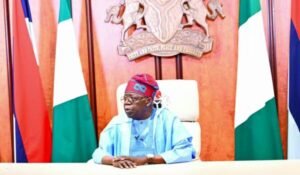
Much ado about presidential pardon
Nigeria’s presidential pardon power has been a source of controversy, fuelling heated debates and demands for reform due to its perceived misuse in favouring partisan interests and personal agendas over the nation’s well-being.
The power, otherwise known as prerogative of mercy, intended to serve the greater good, has often been wielded in ways that prioritize narrow partisan interests and personal agendas over the nation’s well-being.
This has led to widespread criticism and scepticism about the motivations behind the granting of pardons to ex-convicts, especially corrupt individuals.
According to political analysts and other concerned Nigerians, the misuse of the presidential pardon power has significant implications for Nigerian society, undermining trust in the justice system and perpetuating a culture of impunity.
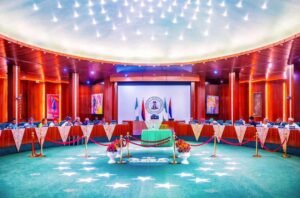

Some lawyers who spoke with Africa Health Report (AHR), said that it was about time the country addressed the concern by putting forward reform proposals, seeking to ensure that the power is either expunged from the constitution or is exercised in a more transparent and accountable manner.
Provisions in the 1999 Constitution
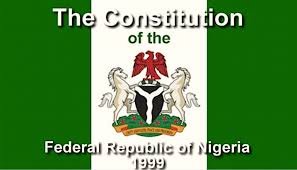
According to Sections 175 and 212 of the 1999 Constitution of the Federal Republic of Nigeria (CFRN), the president and governors have the authority to grant executive pardons.
A Lagos-based legal practitioner, Tayo Oloruntola, who shed some light on the constitutional provisions, said the essence of the pardon is to wash the beneficiary off the legal consequences of their act.
“This type of pardon, exercised through the prerogative of mercy, can be either conditional or unconditional, as stated in subsection 1, paragraph (a) of the relevant sections.
“Essentially, a pardon is a discretionary act of leniency, bestowed by the state’s chief executive, in our own case in Nigeria, the president, which releases an individual from the legal consequences of their crime.”, Oloruntola explained.
The lawyer cited the case of Olu Falae v. Obasanjo (1999), where the Supreme Court defined ‘pardon as an act of grace by the appropriate authority which mitigates or obliterates the punishment the law demands for the offence and restores the rights and the privileges forfeited on account of the offender.’
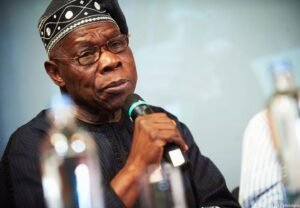
He added that the effect of a pardon is to make the offender, a new man (novus homo), to acquit him of all corporal penalties and forfeitures annexed to the offence pardoned.
Another lawyer, Mr Abiodun Ajibade, who expatiated on the constitutional provisions echoed the same sentiment.
In his words, “The President possesses the constitutional authority to grant a presidential pardon, a merciful act or grace that wipes clean an offender’s criminal record, effectively giving them a clean slate as if they had never committed a crime.
“This power, despite ongoing controversy and calls for its removal due to its perceived negative consequences, remains enshrined in the law, allowing the President to exercise such prerogative power.
“Nigeria’s constitution adopted the concept of prerogative of mercy from British law, granting the President the power to grant pardons and reprieves, a legacy of the country’s colonial past.”
Some Nigerians who have enjoyed presidential pardon
A number of prominent Nigerians, including former heads of state, military leaders, and politicians, have been granted presidential pardon in the past.
This category includes General Olusegun Obasanjo, Jolly Nyame, Joshua Dariye, Diepreye Alamieyeseigha, Yakubu Gowon, General Chukwuemeka Ojukwu, Lateef Jakande, General Oladipo Diya, and others, who were pardoned for various offenses.
Others like Major Bello Magaji, Mohammed Lima Biu, and Major Segun Fadipe received posthumous pardons, and even a former banker like Shettima Bulama, who was convicted for financial fraud, was also granted the presidential prerogative, pointing to the controversial practice of presidential pardon in Nigeria’s history.
Ex-convicts like Diepreye Alamieyeseigha, Jolly Nyame, Joshua Dariye, and Shettima Bulama, who were imprisoned for corruption-related offenses, stand in contrast to others who received presidential pardons for non-financial crimes, further fuelling the controversy surrounding the use of clemency for those convicted of high-profile financial fraud and corruption in Nigeria.
Diepreye Alamieyeseigha
Former Governor Diepreye Alamieyesigha of Bayelsa State was arrested at London’s Heathrow Airport in 2005 on suspicion of money laundering, with investigators uncovering illicit funds. At the time, Alamieyesigha was not only governor but also the boss of then Deputy Governor Goodluck Jonathan.
The London Metropolitan Police’s Proceeds of Corruption Unit led the investigation and found about £1m in cash in Alamieyesigha’sLondon home. Later a total of £1.8m ($3.2m) was discovered in cash and in his bank accounts
Despite being granted bail with restrictions to remain in the UK, the former governor astonishingly fled Britain three months later.
Alamieyesigha’s return to Nigeria was met with impeachment notices from the Bayelsa State House of Assembly, outlining eight offenses. In December 2005, the assembly voted to impeach him, stripping him of his office and immunity.
The Economic and Financial Crimes Commission (EFCC), led by Nuhu Ribadu, subsequently arrested and prosecuted Alamieyesigha. In July 2007, he pleaded guilty to six counts of false asset declaration in a federal high court in Lagos.
As part of a plea bargain, Justice Mohammed Shuaibu sentenced Alamieyesigha to two years in prison and ordered the forfeiture of assets, including N1 billion in shares obtained through government funds.
In a controversial move, President Goodluck Jonathan granted Alamieyesigha a state pardon, sparking outrage over the decision to absolve his former boss of the serious crimes for which he was convicted.
Jonathan had served under Alamieyesegha as deputy governor, from 1999 to 2005. Many Nigerians saw Jonathan’s pardoning Alamieyesegha as a gratitude to a political benefactor who gave him the opportunity to launch his political career as Bayelsa State deputy governor.
Jolly Nyame and Joshua Dariye
In April 2022, former President Muhammadu Buhari granted state pardon to two former governors, Joshua Dariye of Plateau State and Jolly Nyame of Taraba State, who were serving prison terms for corruption.
The decision was made through the National Council of State, which Buhari presided over at the presidential villa in Abuja. The pardon was part of a broader decision to grant clemency to 159 prisoners.
Nyame, who governed Taraba State from 1999 to 2007, was serving a 12-year jail term for misappropriating funds during his tenure. His conviction was upheld by the Supreme Court in February 2020.
Dariye, like Nyame, governed Plateau State between 1999 and 2007, was jailed for stealing N2 billion of public funds.
The presidential pardon given to the jailed birds sparked widespread outrage among Nigerians, who criticized the move as a miscarriage of justice. Many felt that the pardon sent a wrong signal and undermined the fight against corruption in the country.
The pardon of the two former governors was seen as a controversial move, with many questioning the criteria used to select those who benefited from the clemency.
The decision also raised concerns about Buhari’s much-vaunting commitment to fighting corruption and ensuring accountability among public officials.
Fagbemi’s call for the removal of state pardon
Attorney General of the Federation (AGF) and Minister of Justice, Lateef Fagbemi, SAN, flew a kite by advocating the removal of state pardon provisions for corruption convicts from the Nigerian constitution.
He made the call last week Monday, at a roundtable organized by the Independent Corrupt Practices and Other Related Offences Commission (ICPC) for State Attorneys-General (AGs) in Abuja.
Fagbemi argued that allowing corrupt officials to serve their full prison terms would deter others from engaging in corrupt practices. He emphasized the need for law enforcement agencies to conduct thorough investigations, stressing that prosecution agencies must have solid facts before inviting suspects for questioning.
“I will suggest in our next constitution review exercise that we expunge those found guilty of corruption from benefiting from powers of ‘Prerogative of Mercy’ to serve as a deterrent to others,” Fagbemi said.
Fagbemi’s remarks came as part of efforts to revamp the country’s anti-corruption framework and ensure that those found guilty of corruption face the full force of the law.
Reacting to the AGF’s call, Alhaji Yahaya Balogun, a public affairs analyst, hailed the move. He said it would strengthen the fight against corruption in the country.
“The removal of state pardon provisions removal state pardon to former corrupt individuals will definitely strengthen the fight against corruption in Nigeria.”, he stated.
Balogun added that holding corrupt individuals accountable for their actions without the possibility of pardon would promote transparency and accountability in governance.
Constitutional amendment hurdles
As Nigeria operates a rigid constitution, the presidential pardon power can only be abolished through a constitutional amendment, a process that involves several rigorous steps.
According to Section 9 of the Constitution, the National Assembly must first pass a resolution to amend the Constitution, which requires a two-thirds majority vote from both chambers – 72 Senators and 240 Members.
Following the National Assembly’s approval, the proposed amendment must also be endorsed by at least two-thirds of the State Houses of Assembly in all 36 states of the Federation. This means that a minimum of 24 states must approve the resolution for the amendment to be ratified.
The lawyers who spoke to this correspondent were unanimous in their views that the complexity and difficulty of the constitutional amendment process highligh the challenges in expunging the presidential pardon power from the Constitution.
It demands a broad consensus among lawmakers and state assemblies, making it a daunting task to achieve the necessary majority votes required for the amendment to take effect.
Nigeria in a cesspool of corruption
Those who spoke with the newspaper said corruption has ravaged Nigeria, perpetuating poverty, inequality, and underdevelopment, while undermining trust in institutions and governance.
They contended that Fagbemi’s suggestion for removal of presidential pardon for corrupt individuals would significantly reduce corruption in Nigeria by ensuring accountability and consequence for corrupt acts.
“Without the safety net of a potential pardon, public officials and individuals would be deterred from engaging in corrupt practices, knowing they would face the full force of the law.” Barrister Oloruntola insisted.
By closing the loophole of presidential pardon, Nigeria can strengthen its anti-corruption framework and pave the way for a more just and prosperous society. Will it have a smooth sailing? Time will tell.

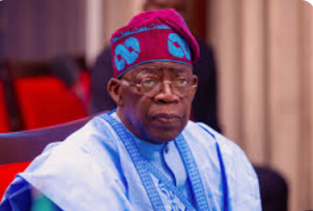

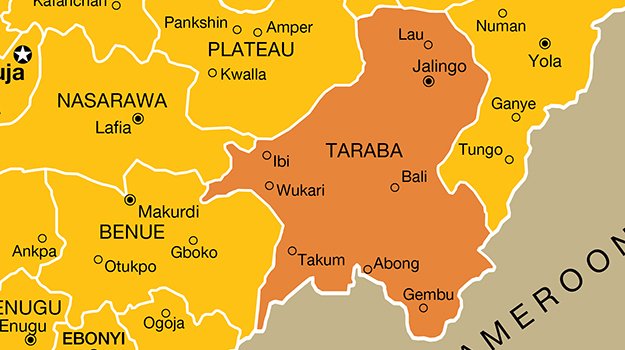
Your blog is a treasure trove of knowledge! I’m constantly amazed by the depth of your insights and the clarity of your writing. Keep up the phenomenal work!
Can you be more specific about the content of your article? After reading it, I still have some doubts. Hope you can help me.